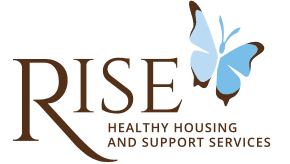“Don’t be afraid to ask for help, I did, and my life is gorgeous today.”
“I want to inspire hope and inspiration in others,” says Alex, a former resident of two RISE recovery programs, Hedgerow House and Progressive Steps Apartment Program (PSAP) Recovery Apartments, when telling his recovery story.
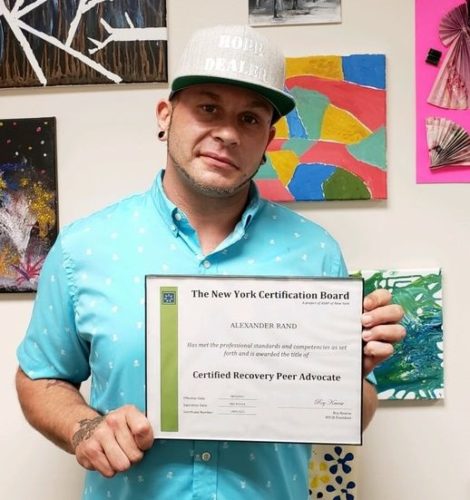 “Help is available, and if you’re ready for recovery from addiction, be it drugs, alcohol, food, gambling, or whatever, don’t be afraid to ask for it,” Alex says in encouragement.
“Help is available, and if you’re ready for recovery from addiction, be it drugs, alcohol, food, gambling, or whatever, don’t be afraid to ask for it,” Alex says in encouragement.
As a Certified Recovery Peer Advocate (CRPA) at Healing Springs Recovery and Outreach Center, Alex is in a position to help others who want to overcome their addictions. Being a CRPA, allows him to utilize his recovery experience to boost other’s engagement in treatment and commitment to recovery.
“There is an addiction epidemic in this country, which due to the confinement and isolation so many experienced during the COVID-19 pandemic, has become apocalyptic,” Alex says emphatically. “I want to spread hope, shine a light, and break the stigma of addiction. There is so much judgment of surrounding addiction that people are afraid to ask for help. But if you need help, don’t be afraid to ask for it. I used to be afraid due to guilt and shame. But do you know what? I asked for help, and my life is gorgeous today.”
“I knew that if I ever put a needle in my arm again, I would die.”
Recovery is not easy, there may be setbacks along the way, and as Alex well knows, it is a life-long commitment lived one day at a time. Alex, who spent twelve years of his life – his late teen years and most of his twenties – addicted to opioids and heroin, has been in recovery from heroin and all other opioids for eight years. But, three years ago, after experiencing trauma in his personal life, he suffered a relapse with alcohol that resulted in a jail sentence after being charged with a felony DWI.
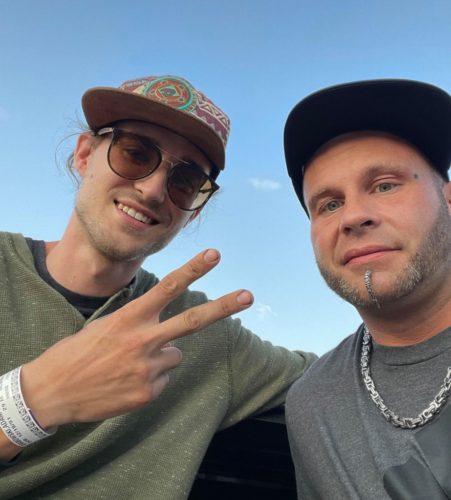
“Talk about shame!” Alex exclaims. “I was so embarrassed from relapsing. I didn’t want to show my face! But I humbled myself and once again, I asked for the help I needed.” Yet, despite these serious ramifications of his lapse with alcohol, Alex’s resolve to never use opioids ever again kept him from returning to heroin. “No matter how much I drank. No matter how much I was tempted,” he explained, “I stayed by my vow to not put a needle in my arm or take opioids in any other form because if I did, I knew I would die.”
“Going to a halfway house like Hedgerow was key to my recovery.”
Alex had been in a good place in his life when he stumbled and relapsed on alcohol. He had been in recovery for over five years, and he was building a life for himself. “For the first time ever,” Alex shares, “Thanks to the help I received at Hedgerow House and PSAP, I was able to take what I learned in substance use treatment and apply it in the real world.”
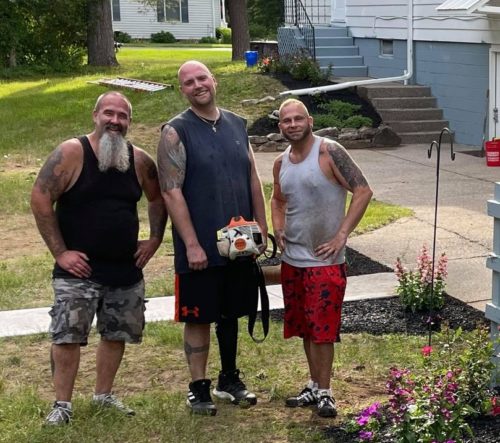 Prior to this, Alex had tried to get clean through detox and rehabilitation programs ten different times. “Going to a halfway house like Hedgerow was the key. I did treatment in rehab very well, but once I was released and went back to wherever I was living, as soon as the pressures started – finding a job, paying bills, living life – I became overwhelmed and started using again. Hedgerow House helped me normalize sobriety and PSAP helped me to transition to a living a life in recovery out in the world.”
Prior to this, Alex had tried to get clean through detox and rehabilitation programs ten different times. “Going to a halfway house like Hedgerow was the key. I did treatment in rehab very well, but once I was released and went back to wherever I was living, as soon as the pressures started – finding a job, paying bills, living life – I became overwhelmed and started using again. Hedgerow House helped me normalize sobriety and PSAP helped me to transition to a living a life in recovery out in the world.”
After PSAP, Alex sustained his recovery “out in the real world” for three and a half years. He was active in the recovery community, taking on leadership roles when available. He worked a job he enjoyed. “I was so proud,” he beamed, “in the three years I worked there, I only missed three days of work.” With the help of both of their parents, he and his girlfriend purchased a house and set up a home.
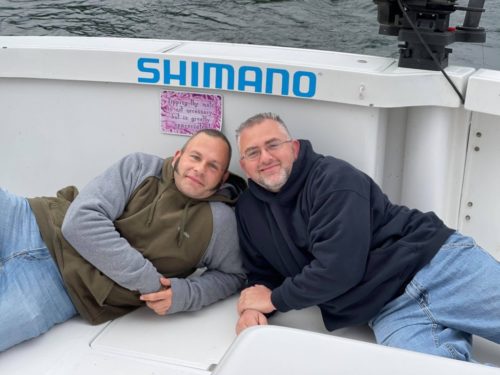
“It was all going so well until it wasn’t,” Alex reflects. “I found out that she was having an affair and we broke up. Her parents paid off my parents, so she got the house, and I was left trying to and figure it all out again. I turned to alcohol to cope with the pain and, as everyone in recovery knows, one drink leads to another and within two weeks, I was a full-blown alcoholic.”
Shame and guilt kept him from going to self-help meetings and reaching out for help and Alex continued to drink to drown out his emotions. “I was too ashamed to go to a meeting and admit I relapsed,” he admits.
“I was scared but I knew I needed to ask for help.”
Under the constant influence of alcohol, Alex made a series of poor choices, one of which led to his being charged with the felony DWI, jail time, and eventually probation. While on probation, Alex overdosed on Alcohol and Xanax. “I was scared but I knew I needed to ask for help. I turned to my mom and together, she and Lillian McCarthy, the Associate Director at Healing Springs, got me into one of the White Deer Run substance use recovery centers. But because it was out of state and I didn’t report to probation until after I was at the facility, my probation was violated, and after rehab, I had to finish out the eight months of my sentence in county jail.”
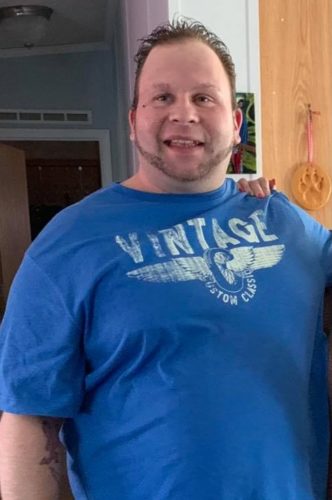
While in jail, Alex maintained his sobriety but once he was released, he knew he needed help to maintain his recovery. “I knew I could do it because I did it before. So, I reached out to my friend and current roommate, Adam, for some extra support and accountability like I had at Hedgerow. I wanted to change on all levels, physically, mentally, and spiritually,” Alex shares. “I started working my recovery hard core, going to meetings, and working the program.
“The pandemic hit, but I didn’t let that stop me.”
Then the COVID-19 pandemic hit, but I didn’t let that stop me.” Alex and Adam sheltered in place with Alex’s parents, who were divorced but living together as friends after Alex’s stepfather had passed away the year before.
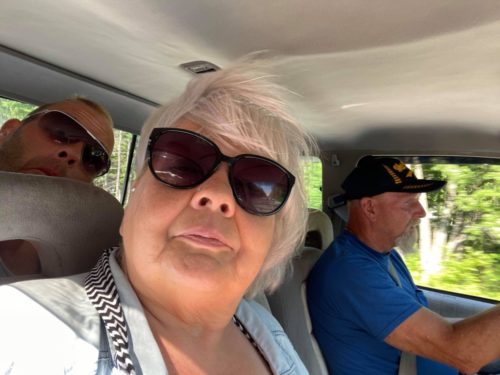 “While in lockdown, I attended virtual meetings and communicated with Adam and my parents on a daily basis. A silver lining is it was the best experience I had with my family ever, all because I didn’t let my mistakes, my guilt, and my shame keep me from asking for help.”
“While in lockdown, I attended virtual meetings and communicated with Adam and my parents on a daily basis. A silver lining is it was the best experience I had with my family ever, all because I didn’t let my mistakes, my guilt, and my shame keep me from asking for help.”
As a child, on the surface Alex’s home life seemed stable.
“I grew up in a small town near Newberg, New York. All of my friends thought my mom was so cool and my house so great,” Alex explains, “but in reality, my home life was chaotic, my parents fought all the time, they believed in corporal punishment, and not being the best kid around, I got my butt beat on a regular basis.”
School was tough for him as well, “I was overweight, I had rough patches of skin due to psoriasis, so I was bullied a lot.” Then when he was 13, his parents got divorced, which he blamed himself for despite their assurances. Around this same time, he started experimenting with marijuana and alcohol. It was through using substances that he found group of kids who befriended and accepted him for himself. “It was not so much about getting high,” Alex explains, “as it was being around people who liked me and wanted to hang out with me, so I kept using because I fit in.”
Alex was 17 when he discovered opioids.
“I was prescribed a high dosage of oxycodone after a shoulder surgery I had when I fell off a roof with a package of shingles while working as a roofer when I was 17. I was prescribed 90 pills a month for four months so of course I became addicted,” he explains. “When my doctor saw that I was becoming addicted, he cut me off. That is when I found heroin. The person who turned me on to it told me it was just like oxy, so in my mind it was okay.”
For several years, Alex snorted heroin, inhaling it through his nose, but then one day, when he was in his early 20s that same person had loaded up a syringe and encouraged Alex to try injecting it telling him, once you do it, you’ll never go back. “He was right, I never went back to snorting and for the next eight years I injected anything that would fit into a syringe, coke, crack, even alcohol, and for the during those eight years, all I lived to get high.”
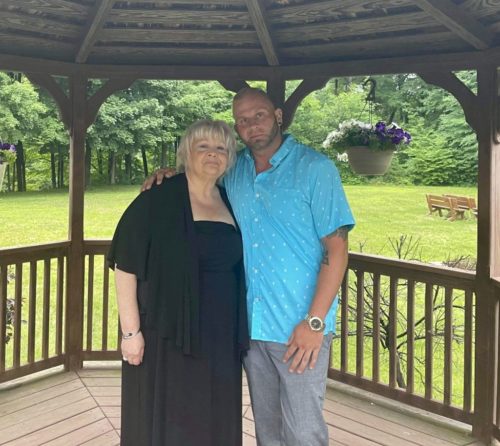
“I can tell you the exact date, May 27, 2004, when I realized I had a problem,” says Alex. This realization was the beginning of Alex’s attempts to get clean and his ten stints in rehabilitation programs.
“Finally, in 2014, I realized I had to stop, or I would end up dead. I was 28 and had nothing to show for my life except for a black garbage bag of clothes. My biggest accomplishment was getting my GED.
I had put my family through so much. I don’t understand why they didn’t disown me, but they didn’t, even my stepfather stood by me when I finally sought help for my addiction.”
“I heard good things about Hedgerow House.”
“I had heard good things about Hedgerow House from family and friends who lived in this area. So, hoping that a halfway house would help me stay clean after rehab, I applied but was put on a waitlist,” Alex explains. “It was tough, I had to wait a month for a bed to be open, and I had to stay clean while doing so or they would not accept me into the program. My mom and stepfather graciously let me stay with them and my mom and my best friend, Matt, helped me stay clean until I got into Hedgerow.”
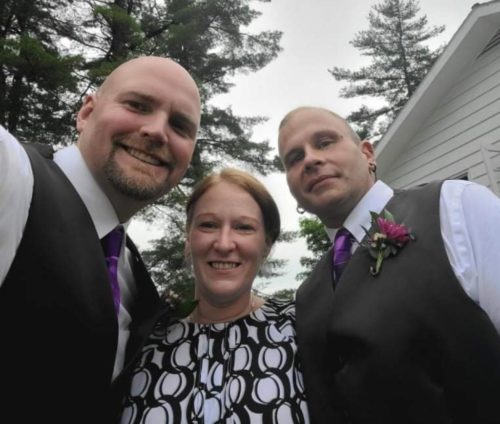 “At Hedgerow, not only did I have accountability, but I also found someone who understood how my mind worked,” Alex exclaims when describing his Hedgerow House Counselor, Dennis Brooks. “He was authoritative, and he rubbed me the wrong way, but I saw that he knew something about this recovery walk, so I listened and learned from him.”
“At Hedgerow, not only did I have accountability, but I also found someone who understood how my mind worked,” Alex exclaims when describing his Hedgerow House Counselor, Dennis Brooks. “He was authoritative, and he rubbed me the wrong way, but I saw that he knew something about this recovery walk, so I listened and learned from him.”
While at Hedgerow House, Alex attended groups at St. Peter’s Addiction Recovery Center (SPARC). “I absorbed all I could while there because this time I wanted to do it right and maintain my recovery.” When he was ready to graduate from both SPARC and Hedgerow, because he also had mental health diagnosis, Alex was referred to the PSAP Recovery Apartments where he could continue to maintain his recovery while focusing on how to manage his mental health.
After SPARC, Alex attended groups at Saratoga County PROS to learn the coping skills he needed to eventually be able to manage his mental health symptoms without needing to be medicated. In the apartment program, he worked on real world skills – budgeting, utilizing community resources, relationship skills – with his PSAP Recovery Counselor and was ready to maintain his recovery when he transitioned out into the “real world” with his girlfriend.
During the pandemic Alex utilized the online recovery services offered at Healing Springs Recovery Center.
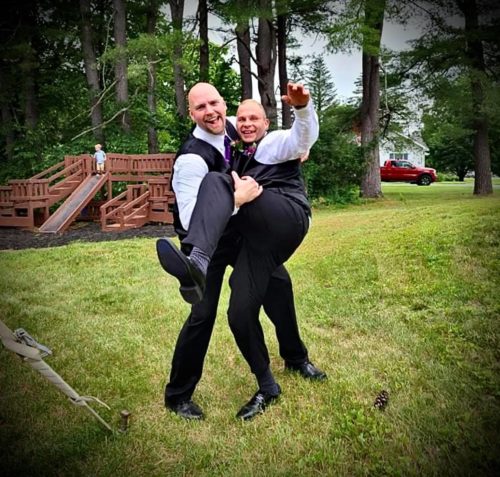 “I was so proud of what I accomplished, thus the guilt and same I felt when I relapsed on alcohol after my relationship ended was intense,” Alex shares. “Thus, I was so grateful when my parents allowed Adam and I to shelter in place with them during the pandemic. It was a time for healing, both of myself and with my relationship with my parents.”
“I was so proud of what I accomplished, thus the guilt and same I felt when I relapsed on alcohol after my relationship ended was intense,” Alex shares. “Thus, I was so grateful when my parents allowed Adam and I to shelter in place with them during the pandemic. It was a time for healing, both of myself and with my relationship with my parents.”
During the pandemic Alex utilized the online recovery services offered at Healing Springs. “Last November, once things began to open up again, I started volunteering at Healing Springs. I led the virtual All Recovery Meeting and then in March 2021, I was hired part time to work the front desk. I loved working the front desk. I was the first person people saw when they walked in, so I tried to always be positive which earned me the nickname, Mr. Positivity.”
“The Healing Springs family is monumental to who I am today!”
In July 2021, Lillian spoke to Alex about working full time at Healing Springs, as the In House CRPA and Ben Deeb, the CRPA Supervisor, who Alex also knew as a friend and sober support, encouraged him, and guided him through the CRPA Training application process including finding scholarship funds to pay for it. “After I completed the CRPA Training,” Alex shares, “I was hired full time as a CRPA on a provisional basis. I had to pass the CRPA test, which to me was daunting. But with the support of Ben, Lillian, and the rest of the staff at Healing Springs, I passed it and I now have my certification.”
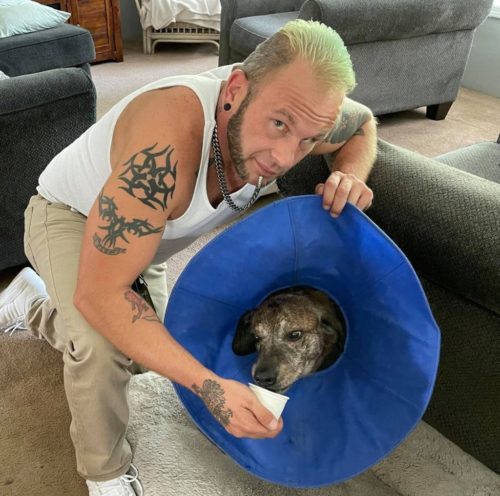 “The Healing springs family is monumental to who I’ve become today!” Alex exclaims. “It is amazing the things I do now that I never dreamed of doing. I always worked physical, manual labor type jobs. Now I do things like use a computer, fill out documents, and complete paperwork. However, the best, most fantastic thing about working at Healing Springs as a CRPA is helping people with their recovery. I know it sounds clique and overused, but after all I’ve been through, if I can do it, anyone can.”
“The Healing springs family is monumental to who I’ve become today!” Alex exclaims. “It is amazing the things I do now that I never dreamed of doing. I always worked physical, manual labor type jobs. Now I do things like use a computer, fill out documents, and complete paperwork. However, the best, most fantastic thing about working at Healing Springs as a CRPA is helping people with their recovery. I know it sounds clique and overused, but after all I’ve been through, if I can do it, anyone can.”
RISE is proud to be a part of Alex’s amazing recovery story. He has overcome so much and despite the setbacks he experienced, he is committed to his recovery and to helping others along their recovery journeys. We wish him well as he continues to live a life of sobriety.

